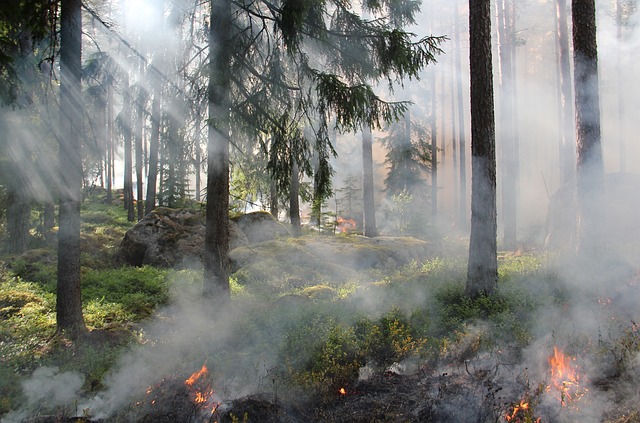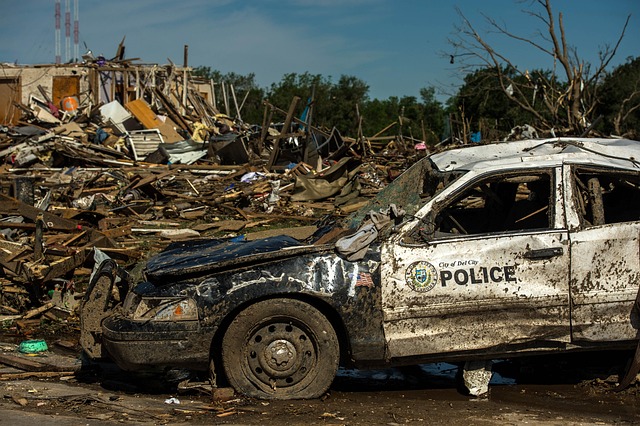Selling a fire-damaged property in California requires strict legal disclosures to protect homebuyers and maintain transparency. Sellers must provide detailed information about the fire damage, repairs, and history, including affected areas, methods used, and code compliance. Failure to disclose significant defects can result in penalties, lawsuits, and financial consequences for buyers, emphasizing the need for thorough inspection and accurate disclosure to avoid legal repercussions.
In California, real estate transactions are governed by stringent disclosure laws, particularly when it comes to fire damage. Understanding these requirements is crucial for both sellers and buyers looking to navigate the sale of a fire-damaged property in the Golden State. This article delves into California’s specific fire damage disclosure regulations, outlines what sellers must disclose, explores legal implications of non-compliance, and provides best practices for transparent communication during such transactions. Key terms like “sell a fire damage house California” are woven naturally throughout to enhance SEO relevance.
- Understanding California's Fire Damage Disclosure Requirements
- What Sellers Must Disclose When Selling a Fire-Damaged Property
- Legal Implications of Non-Compliance: Consequences for Sellers
- Best Practices for Transparent Communication in Fire Damage Real Estate Transactions
Understanding California's Fire Damage Disclosure Requirements

In California, selling a fire-damaged property requires specific disclosures to potential buyers. These laws are in place to ensure transparency and protect homebuyers. If a home has experienced fire damage, sellers must provide detailed information about the extent of the damage and any repairs made or planned. This includes disclosing whether the fire was contained to a specific area, the year it occurred, and the nature of the restoration work carried out.
The state’s regulations require a comprehensive report detailing the fire damage assessment, the methods used for repair, and any potential residual effects. Sellers should also be prepared to share documentation related to the renovation process, permits, and inspections to prove compliance with local building codes. Being transparent about fire damage history is crucial when selling a property in California to maintain legal integrity and foster trust between sellers and buyers.
What Sellers Must Disclose When Selling a Fire-Damaged Property

When selling a fire-damaged property in California, sellers have specific legal obligations to disclose certain information to potential buyers. This is designed to ensure transparency and protect homebuyers from unforeseen issues or financial surprises. According to California Civil Code, sellers must reveal any known defects or damage caused by fires, including the extent of the damage, the cause, and when it occurred. This includes providing details about any repairs made and the materials used in those repairs.
Additionally, sellers should be open about ongoing or future remediation efforts related to the fire damage. This transparency extends to disclosing insurance claims filed or settlement agreements reached regarding the incident. Buyers have the right to know if there are any outstanding issues or legal complications tied to the property’s history, as this could impact their decision and investment in purchasing a fire-damaged house in California.
Legal Implications of Non-Compliance: Consequences for Sellers

The legal implications of non-compliance with real estate disclosure laws can be severe, especially for sellers in California looking to sell a fire-damaged house. Failure to disclose significant property defects, including damage from fires, can lead to a range of consequences. These may include financial penalties, lawsuits, and even criminal charges. In California, sellers are legally obligated to provide potential buyers with accurate and comprehensive information about the property’s condition. This includes disclosing any fire damage, as it can impact the structural integrity, safety, and value of the property.
If a seller omits or misrepresents this crucial detail, buyers may incur substantial costs for repairs they were not made aware of. Worse, hidden fire damage could compromise the safety of future occupants. Consequently, sellers must take the necessary steps to thoroughly inspect their properties and disclose any issues, ensuring compliance with California’s strict real estate disclosure regulations. This proactive approach not only protects buyers but also safeguards sellers from potential legal repercussions.
Best Practices for Transparent Communication in Fire Damage Real Estate Transactions

When selling a fire-damaged house in California, transparent communication is paramount to ensure a smooth and legally compliant transaction. Sellers must disclose any known issues related to fire damage, including the extent of the harm, repairs undertaken, or potential lingering hazards. Providing detailed and accurate information allows buyers to make informed decisions, avoiding unexpected surprises post-purchase.
Best practices involve offering comprehensive documentation on the fire event, its aftermath, and remediation efforts. This may include reports from fire departments, insurance assessments, and records of repair works. Honesty and openness during negotiations foster trust between parties. Sellers should be prepared to answer questions thoroughly and direct buyers to relevant experts for further assessment if needed, ensuring a transparent process throughout the sell a fire damage house California journey.
When selling a fire-damaged house in California, adhering to strict disclosure laws is paramount. Understanding and complying with requirements, such as those outlined in this article, ensures transparent communication and protects both sellers and buyers. By disclosing all relevant information about fire damage, potential legal implications of non-compliance can be avoided, fostering trust and ensuring a smoother real estate transaction process for all parties involved when selling a fire-damaged property in California.






